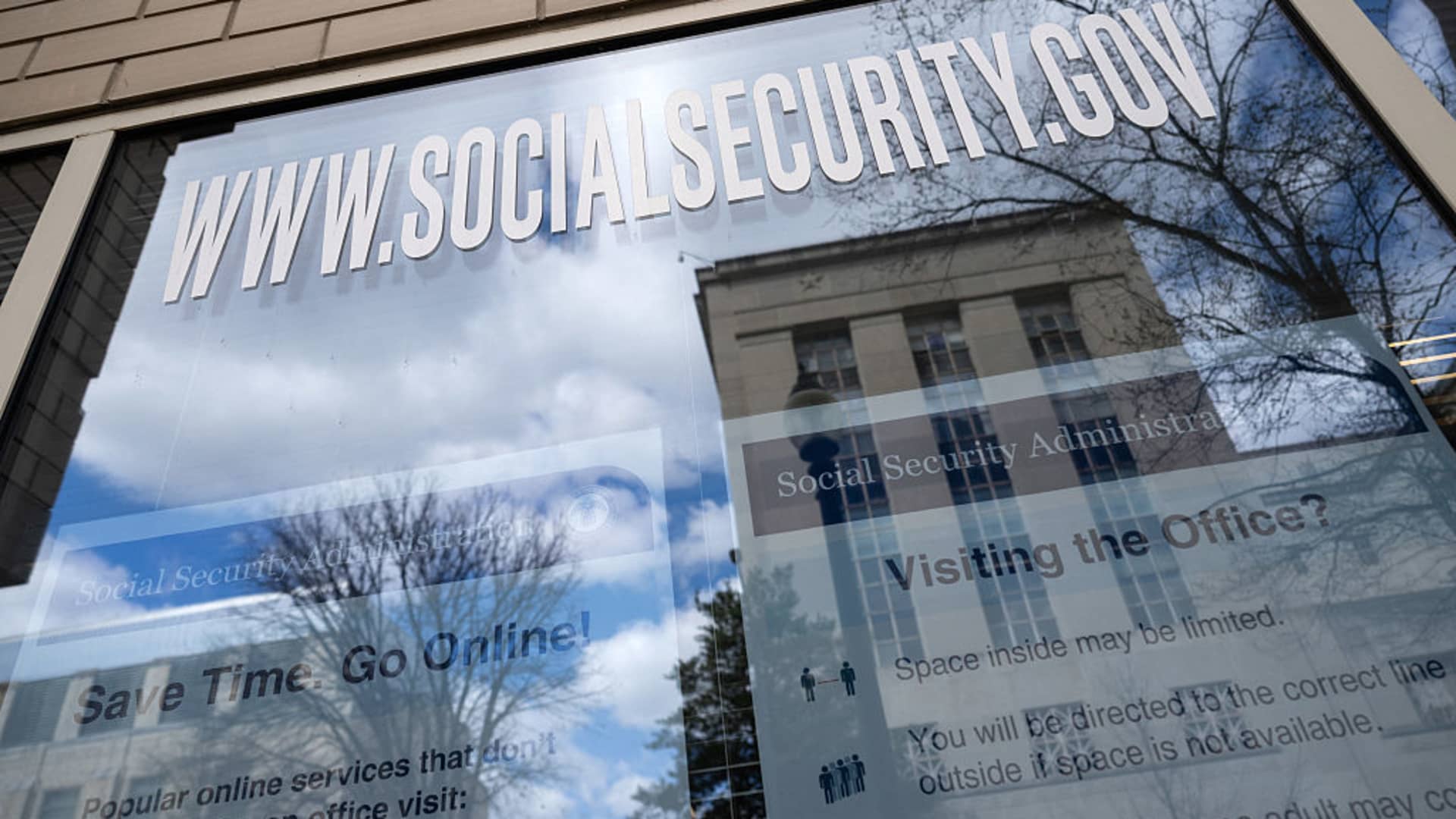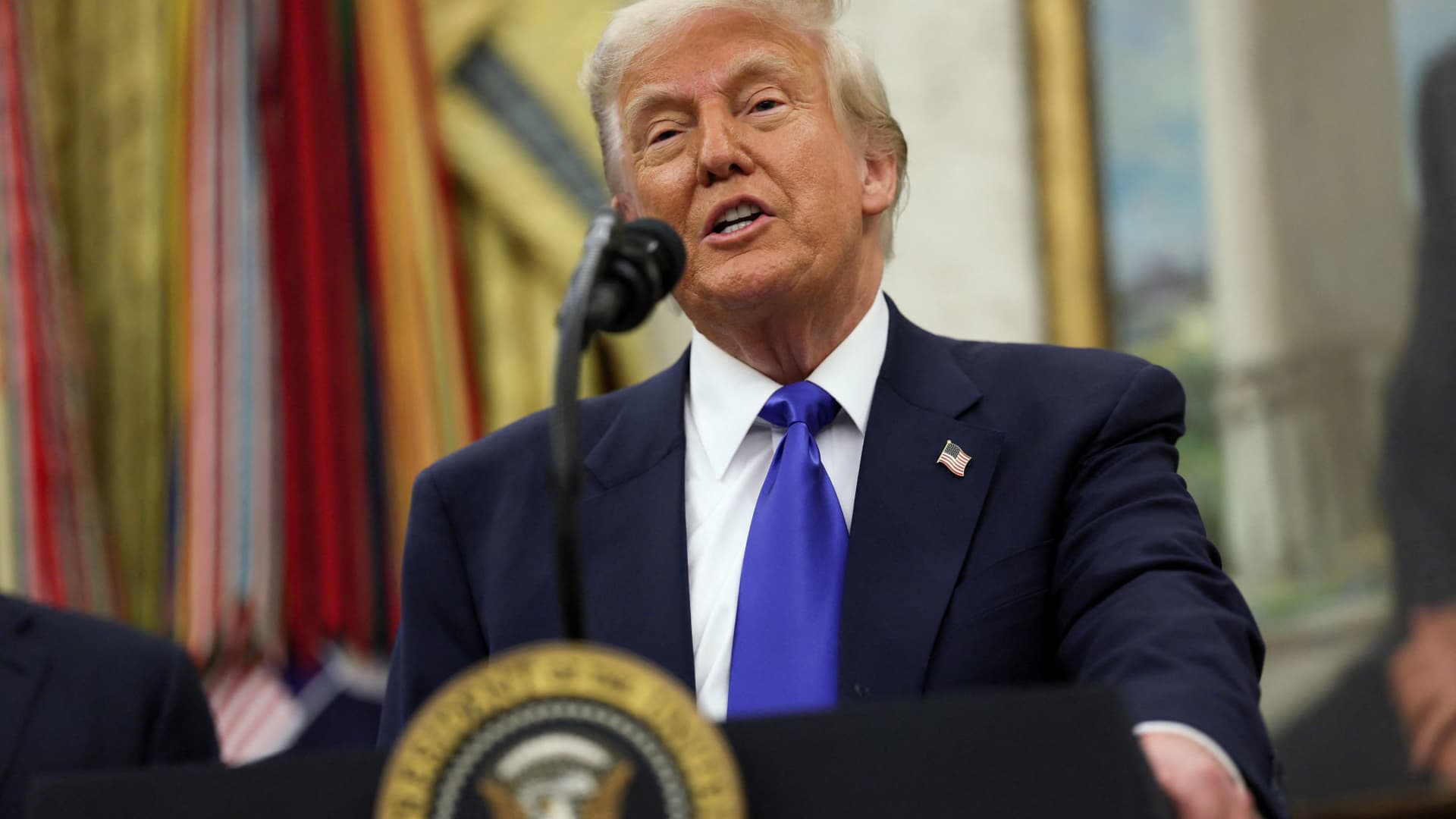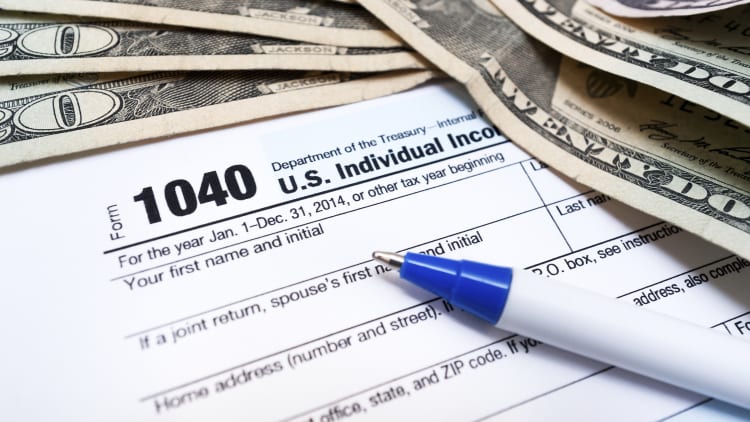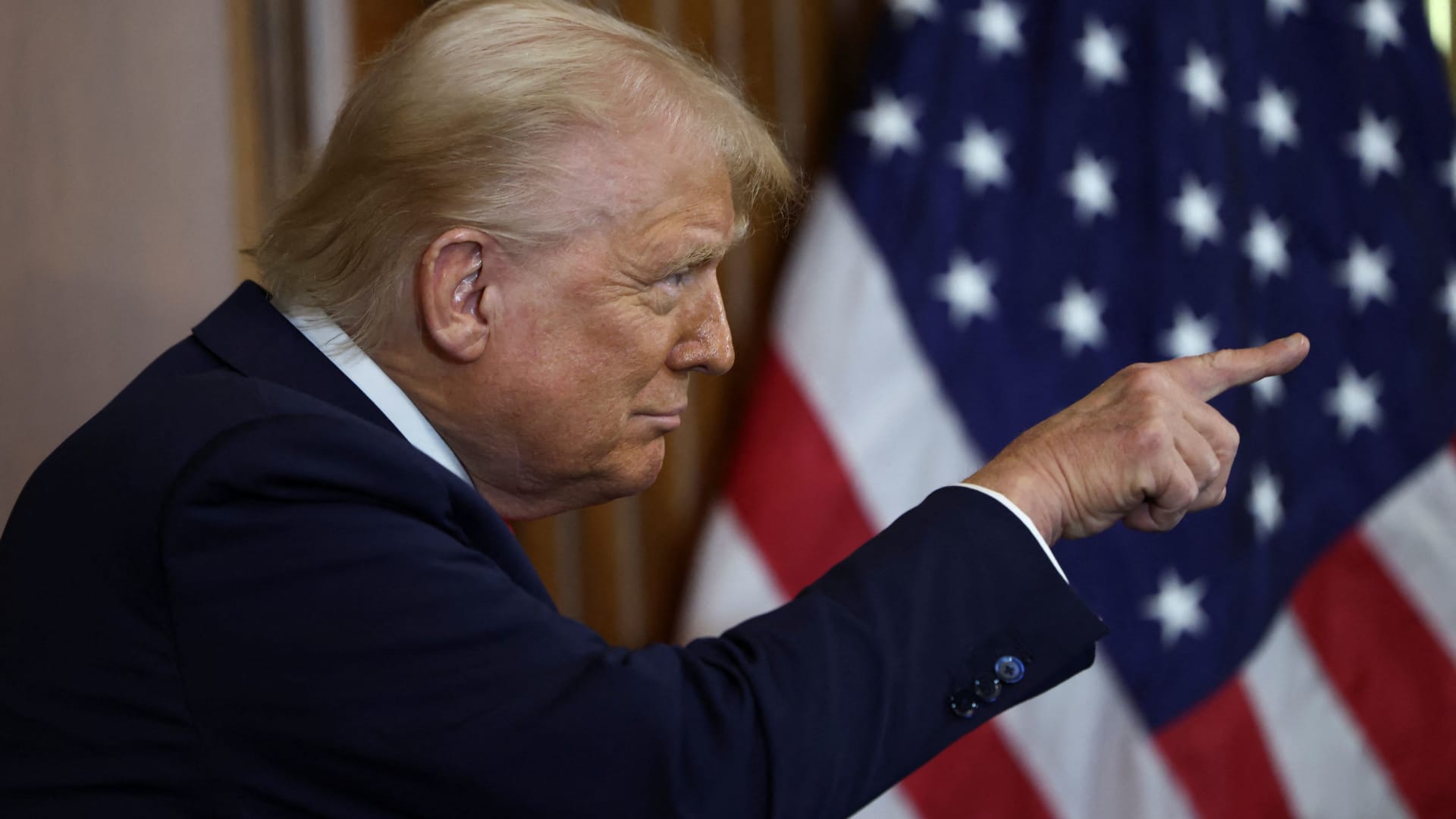A Social Security Administration office in Washington, D.C., on March 26. The Department of Government Efficiency (DOGE) is reportedly aiming to reform and downsize the agency.
Saul Loeb | Afp | Getty Images
The Social Security Administration is under new leadership, after financial services executive Frank Bisignano was sworn in as commissioner this week.
Bisignano’s confirmation follows a host of changes at the federal agency during the first 100 days of the Trump administration, many of them through the Department of Government Efficiency.
For the approximate 73 million beneficiaries who rely on monthly Social Security checks, those changes may affect how they receive services from the agency.
From benefit increases for certain pensioners to changing policies on benefit withholdings and customer service, here are some of the biggest shifts of which beneficiaries should take note.
Certain pensioners see benefit increases
President Joe Biden after he signed the Social Security Fairness Act at the White House on Jan. 5 in Washington, D.C.
Kent Nishimura | Getty Images News | Getty Images
A new law that went into effect in January will provide almost 3 million individuals with increased Social Security benefits.
The Social Security Fairness Act provides higher monthly Social Security checks for individuals who also receive pensions from work that did not include payment of Social Security payroll taxes. It will also provide lump sum retroactive payments starting from January 2024.
Monthly benefit increases may range from “very little” to “over $1,000 more each month,” according to the Social Security Administration, which began those adjustments in February.
The change affects certain workers such as teachers, firefighters and police officers; federal employees under the Civil Service Retirement System; and people who work under foreign social security programs, according to the agency. Those workers had previously seen their benefits reduced or eliminated due to the Windfall Elimination Provision and Government Pension Offset, which have been nixed with the new law.
More from Personal Finance:
Social Security reduces benefit clawback rate
Trump administration restarts student loan collections
What experts say about claiming Social Security benefits early
In the first 100 days of the Trump administration, SSA has paid more than $14.8 billion in retroactive payments to more than 2.2 million individuals, according to the agency.
The agency has expedited the processing of the benefit changes under President Donald Trump. However, it may take a year or more to issue payments for some cases that cannot be processed through automation, according to the agency.
New default withholding rate for repaying benefits
Fertnig | E+ | Getty Images
Social Security beneficiaries are sometimes overpaid benefits due to errors.
When that happens, the Social Security Administration requires the extra money to be repaid to the agency.
Because it can take months or years to catch on to those mistakes, beneficiaries can be on the hook to repay big sums. That money may be withheld from benefit checks until the overpayment has been repaid.
The Social Security Administration has made various adjustments to the default withholding rate from benefits.
In response to complaints that a 100% default withholding rate caused financial hardship for affected beneficiaries, the agency under President Joe Biden changed that default withholding rate to 10% of a beneficiary’s monthly benefit or $10, whichever was greater.
Under Trump, SSA has had a tougher stance on overpayments. In March, the agency announced it planned to reinstate the default withholding rate to 100% of an individual’s monthly benefit. The change was estimated to generate about $7 billion in overpayment recoveries in the next decade.
However, the agency recently issued an emergency message notifying its employees that new overpayment notices sent on or after April 25 will have a 50% default withholding rate. That applies to retirement, survivors and disability insurance benefits. The withholding rate for Supplemental Security Income, or SSI, benefits is still 10%.
Some experts worry a 50% default withholding rate is still too high.
“Losing 50% [of benefits] for a lot of people could put them into immediate economic hardship,” Richard Fiesta, executive director of the Alliance for Retired Americans, recently told CNBC.com.
Student loan debtors may have benefits garnished
Overpayment of Social Security is not the only reason benefits may be withheld.
On May 5, the government resumed collections efforts on federal student loans in default. Now, the Education Department may use the Treasury Department Offset Program to withhold benefits for defaulted loans, as well as other payments like tax refunds and salaries. Some of those garnishments could start as soon as June, according to the Education Department.
The Social Security Administration may also withhold current and future Social Security checks for child support, alimony or restitution payments, according to the agency.
The IRS may take a portion of Social Security payments until it recoups the full balance of overdue federal tax debts.
Beneficiaries face long wait times for service
The Social Security Office in Alhambra, California.
Mario Anzuoni | Reuters
Individuals who call SSA’s 800 phone number face long hold times before they speak to someone at the agency.
To make an in-person appointment, they must either call that number or visit the website, which has experienced glitches.
Those difficulties are “neither new nor unique to the current administration,” Republican House Ways and Means Committee members recently wrote to Bisignano. Meanwhile, Democrats worry those difficulties could signal bigger problems ahead.
In a bid to reduce wait times, the agency has encouraged individuals to use its web site when possible.
The agency is in the process of modernizing its telecommunications platform, which is expected to allow it to better manage calls and provide more self-service options. The rollout, which is expected to be completed by the end of this summer, has helped improve answer rates and average speed of answer, based on early results, according to the Social Security Administration.
As Bisignano takes the helm, advocacy groups are urging for the agency to make the needs of its beneficiaries a priority.
“The vast majority of his current customer base cannot transact financial business through anything other than face to face contact in an office or on the telephone, and they have to be prepared to accommodate that,” said Maria Freese, senior legislative representative at the National Committee to Preserve Social Security and Medicare.
Some may be required to make in-person office visits
A Social Security Administration (SSA) office in Washington, DC, March 26, 2025.
Saul Loeb | Afp | Getty Images
The Trump administration tasked the Department of Government Efficiency with curbing “waste, fraud and abuse” at federal agencies.
Under DOGE, the Social Security Administration sought to make it so services that could previously be handled over the phone would need to be done in person at an agency office to prevent fraud.
However, the agency has since scaled back that policy to allow for claims for retirement, survivor and spousal and children’s benefits to still be permitted over the phone. Individuals making other claims, including Social Security disability insurance, Medicare and Supplemental Security Income, can also still use the agency’s 800 number.
Notably, changes to direct deposit information will mostly still need to be handled either online or in person.
Consequently, almost 2 million more elderly and disabled individuals may need to visit Social Security offices in person annually, the Social Security Administration has revealed.
The online process may be difficult for some individuals because it requires multi-factor, multi-step online verification and a one-time PIN code, CBPP notes. Previous estimates have found that about 42% of older adults may lack access to reliable broadband service, according to the AARP.
In some cases, people may be able to change their direct deposit information over the phone if they are also able to verify their identity online, according to Freese.
The agency has “left this very convoluted system in place to use the telephone in order to change your banking information, but for the vast majority of seniors and members of the disability community, they’re never going to be able to use it,” Freese said.
Direct deposit fraud represents less than one-hundredth of one percent of benefits that are misdirected, according to the Center on Budget and Policy Priorities.
Digital Social Security cards available this summer
Douglas Sacha | Getty Images
The Social Security Administration plans to roll out a new secure digital form of identification as an alternative to traditional paper cards beginning early this summer.
The new digital feature will allow individuals who have either forgotten their Social Security number or who have lost their Social Security cards to access their personal number online through the agency’s My Social Security website.
They will also be able to access their Social Security numbers through digital devices and display them as identification for “reasons other than handling Social Security matters,” according to the agency.
With the new effort, the agency aims to reduce the inconveniences caused by lost or stolen cards, which currently requires individuals to apply for replacements either online or in person.
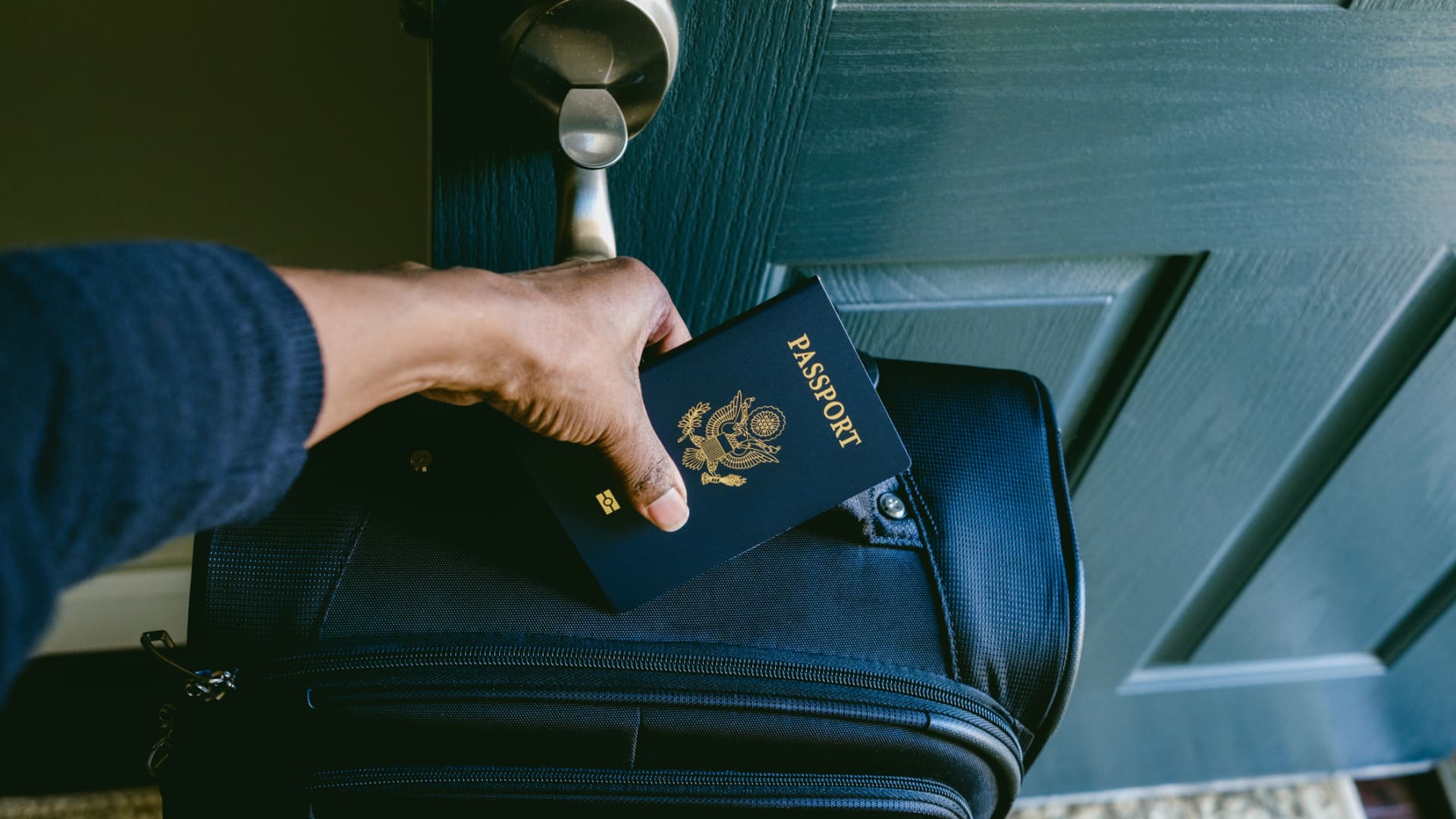

 Finance1 week ago
Finance1 week ago
 Finance1 week ago
Finance1 week ago
 Accounting1 week ago
Accounting1 week ago
 Economics1 week ago
Economics1 week ago
 Economics1 week ago
Economics1 week ago
 Economics7 days ago
Economics7 days ago
 Personal Finance4 days ago
Personal Finance4 days ago
 Economics1 week ago
Economics1 week ago


